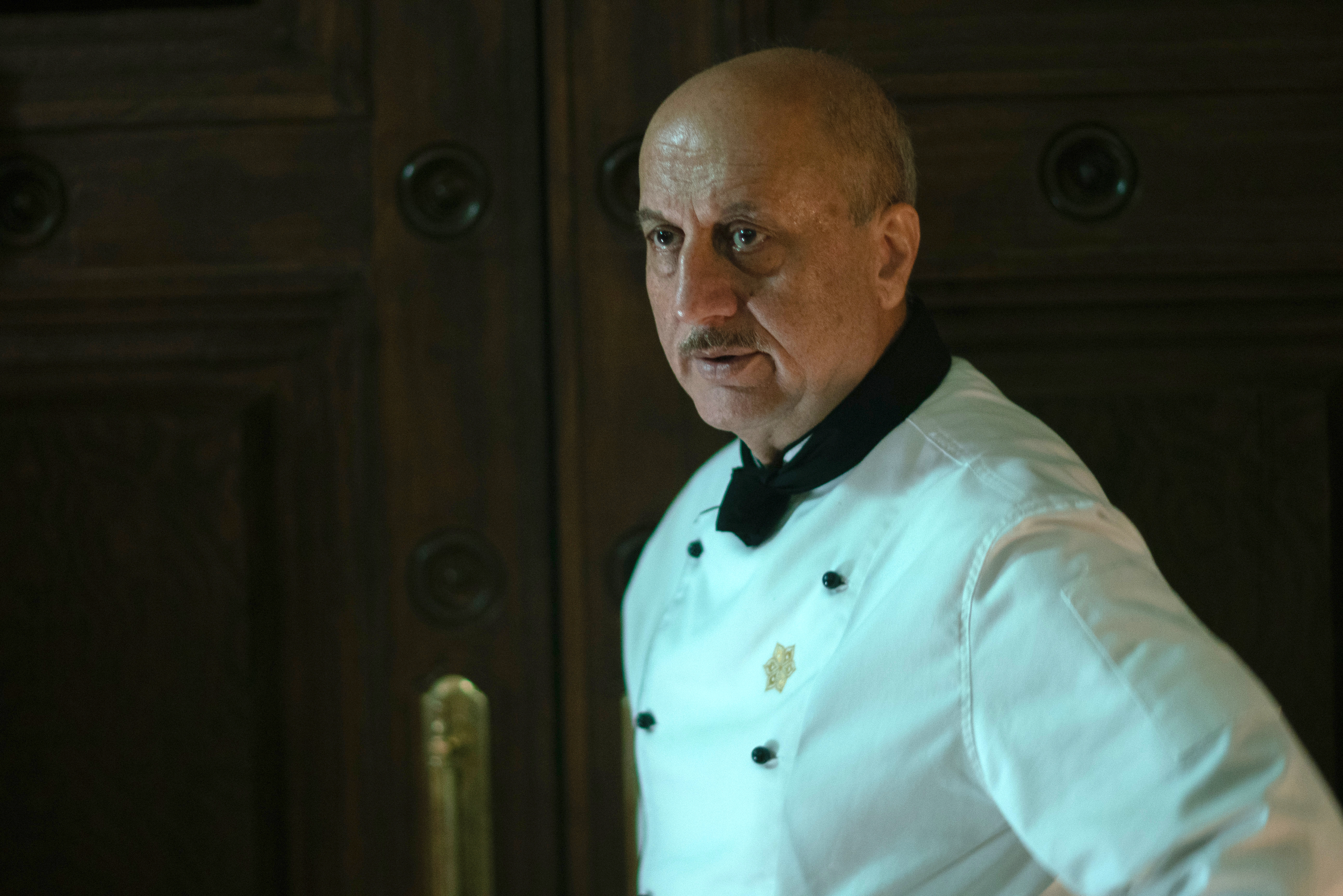Anupam Kher is one of India’s most successful and prolific actors. Since 1982, he has appeared in more than 500 films. Best known to Western audiences for his roles in films like Bend it Like Beckham, Silver Linings Playbook, and The Big Sick, he next appears in Hotel Mumbai.
Indians have a unique experience and cultural memory of the Mumbai attacks. How do you remember the events of those three days?
When any such act does not occur immediately around you, it feels like “news.” Of course, one still feels the emotional impact, but there is a natural separation. When the attacks happened, I was in Mumbai filming. When the terrorists began attacking the Chhatrapati Shivaji Terminus and the Leopold Café, most people thought the violence was gang-related. Then a friend called me and told me that the Oberoi Trident had been attacked, and when the Taj Hotel was captured the reality hit everyone.
I had a friend from Delhi who was at the Taj, and I was friends with the General Manager of the hotel. It was hard to believe that all of that was actually happening. Then the television news coverage began, and it felt like there was a hushed silence over the 12-14 million people in the city of Mumbai.
How did you become involved with this project?
When [director and co-writer] Anthony Maras approached me with the script, I had to think hard about it. I wasn’t sure if I wanted to relive the events of those days. But Anthony’s passion for the project, his intentions for the story, and his compassion came through, and that was so important for a film like this. And then I saw The Palace, Anthony’s 2011 short film [about the 1974 invasion of Cyprus]. That convinced me that he really knew what he wanted to do with this story.
The principal cast all met in Adelaide, Australia, when we started filming for the interiors of the Taj. We arrived as actors from different continents to make a movie, but when we did the script reading and started rehearsing, everybody started bonding not only as professional actors but as human beings.
The film is full of stark contrasts—ear-splitting violence and silence, horror and humor—as well as the heroism of everyday people.
Yes, that is the soul of the film, the heroism of common people. My grandfather used to say that there is a hero inside everybody, and that some people get an opportunity to show that hero and some people don’t. Chef Hemant Oberoi, who I play in the film, certainly didn’t think of himself as a hero, but when the attack occurred, he took command of the situation.
My dear friend, Karambir Kang, was the General Manager of the Taj at the time. He lost his wife and two young children in the attack; his sons were 8 and 9 years old. Now, he works as the General Manager of the Taj in New York.
I have great respect for the way people are able to live their lives after this kind of tragedy. Sometimes we don’t talk about loss, but catharsis is important. That scar does not go away, and yet people carry on. It’s really extraordinary.
There must be a special responsibility when playing a real person. Did you meet Chef Hemant Oberoi prior to filming?
I had been to his restaurant, Wasabi, and knew of his reputation as one of the best chefs. We had met there very briefly.
I don’t always like to meet beforehand the people I’m portraying. It can sometimes be a trap, as it’s easy to get overly focused on how someone stands or moves his hands. I feel that if I can capture the essence of the person and their personality, then the physicality will come across. What was important to me was to bring out how he must have felt at the time.
I was moved by Chef Oberoi’s reaction when he saw the film at the Toronto International Film Festival. He said, “Only you could’ve played this role.”
This film offers a realistic and almost intimate depiction of the terrorists. We see their commitment to carrying out such horrible violence, but also their self-doubt, fear, and humor.
Yes, the gunmen were indoctrinated and ordered to carry out the attack, and the film reminds us that they were human beings. To me, the most cowardly thing someone can do is kill innocent people.
India and Pakistan are still caught in a cycle of violence—most recently with the tensions and hostilities following the February 2019 Pulwana attack—and this film remains relevant.
Yes, the film’s relevance isn’t limited to the events of 2008, as that sort of violence still continues today. The only answer to such acts is not to bow down, but to keep living one’s life. To me, Hotel Mumbai is one of the films of our times.
What do you hope people will take away from the film?
A sense of togetherness, courage, and compassion. And to remember the victims and those who showed courage under such circumstances.
Of course, the film offers the documentation of an important event, but also the fact that humanity comes together in such moments. One of the great things about Mumbai’s residents is their ability to get back on their feet and resume their normal lives, and that resilience is, unfortunately, demonstrated through tragic circumstances like this.
I’m an eternal optimist, so I see hope in that. ✯
Film Recon is a web series by Paraag Shukla, Senior Editor of Military History magazine at HistoryNet.
Hotel Mumbai will open in select theaters on March 22, 2019, and nationwide on March 29, 2019.
Check out our other Film Recon interview for Hotel Mumbai:
Anthony Maras — Director, Co-writer





